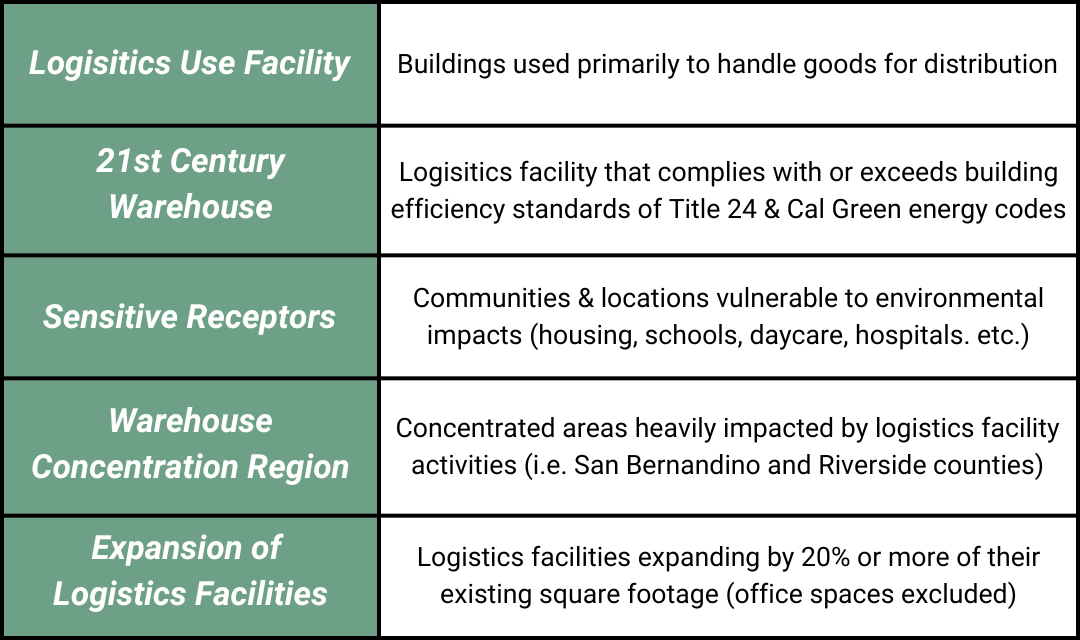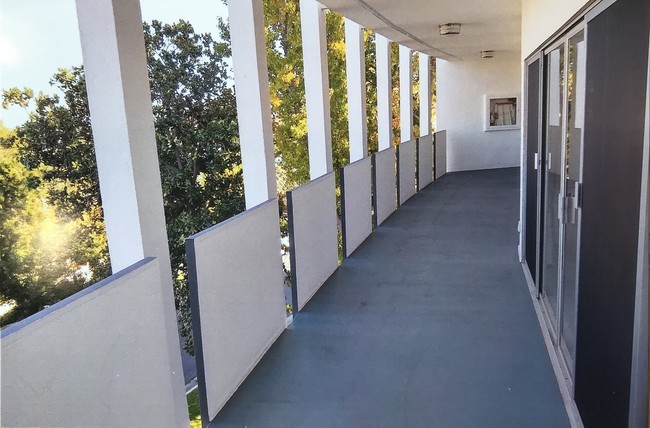Approved by Governor Newsom in September 2024, Assembly Bill No. 98 (AB 98) is making waves in California’s logistics development and has left many in the logistics real estate industry grappling with its implications. While the new energy efficiency requirements bring challenges, it also opens the door to unexpected opportunities in warehouse sustainability.
What if complying with AB 98 could save money, attract tenants, and give logistics properties an edge above their competition? Let’s look at the bill and how to take advantage of it.
What Is AB 98?
Taking effect on January 1, 2026, this bill is poised to change the future of logistics in California. Its main goals are to reduce the environmental impact of logistics developments, particularly for warehouses near sensitive receptors. Since the bill also incorporates forthcoming California Title 24 building energy standards and CALGreen reach codes, it poses a challenge to the development of logistics properties in the state.
AB 98 Key Terms

Which Building Types are Affected by AB 98?
To reduce the impact on surrounding communities and set up infrastructure for a more efficient future, any newly proposed logistics development or existing ones expanding by 20% and within 900 feet of a sensitive receptor, will face many new restrictions.
What are 21st Century Warehouse Design and Build Standards?
- Truck loading bays will need to be oriented away from sensitive receptors
- New minimum distances between loading bays and residential areas
- Updated mitigation standards for noise and light pollution using screening and buffering
- Must incorporate energy-efficient features, such as EV charging infrastructure, PV solar panels and battery storage, cool roofing, and high-efficiency HVAC systems
In addition to the updated building standards, facility operators will need to submit truck routing plans to and from the state highway system that avoid sensitive receptors. AB 98 also seeks to protect affordable housing, requiring a 2-to-1 replacement of demolished housing units that have been occupied within the last 10 years.
Who is Affected by AB 98?
As with most newly passed bills, there are many stakeholders that will be impacted. Logistics owners and developers will certainly face higher costs as they design and build around the updated building regulations. While existing properties are unaffected, any new developments or current buildings wanting to expand by 20% or more will need to be green building compliant.
Simultaneously, the communities surrounding these facilities will benefit from reduced pollution and face fewer disruptions from truck routes.
Top 5 Ways to Offset AB 98 Development Costs
1. 21st Century Warehouse Retrofitting
Retrofitting existing facilities with features like PV solar panels, LED lighting, and high-efficiency HVAC systems will be essential in being AB 98 compliant. If a property is looking to expand, having these features will make the entire development process simpler and more cost effective in the long run.
2. Cost Offsets from High-Efficiency Developments
By optimizing logistics developments to be as energy efficient as possible, building owners can save on operational costs, offsetting the more expensive regulations required under AB 98. Additionally, they could take advantage of tax incentives and rebates for renewable energy adoption, further offsetting the cost of becoming AB 98 compliant.
3. Property Value Enhancement
Beyond basic level compliance, qualifying for building certifications such as ENERGY STAR, Fitwel, LEED, and WELL can make your development more attractive to investors and prospective tenants. Having higher-value tenants and certified buildings can give you a significant competitive advantage while other developments struggle to become compliant.
4. Roadmap to Become AB 98 Compliant
With all the new regulations of California warehouse compliance, it can be daunting to adjust. A consultant, such as Green Econome, can help owners procure the necessary experts, manage the implementation of AB 98 requirements, and help secure financial incentives. Additionally, Green Econome can measure and monitor savings through ongoing l benchmarking of existing data and find the most effective path to staying compliant with AB 98 and current energy policy.
5. Facility Futureproofing
Although AB 98 is extremely expansive in its regulations, it is likely just the beginning of the transition towards more sustainable practices both within the commercial real estate industry, and the ESG requirements of the tenants that occupy those spaces. The way I see it, forward-thinking developers and real estate owners have the chance to get ahead of the curve and improve their property’s efficiency to protect the longevity of their investments.
Green Econome, a woman-owned, full-service energy and water efficiency construction and consulting company, has over 20 years of combined experience. We can help explain these complicated regulations and make sure your property is exceeding basic-level compliance. Furthermore, we can recommend solutions that will increase the NOI of your property and increase market value. Please Contact Us for more information or to get started with your project.







